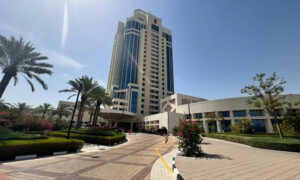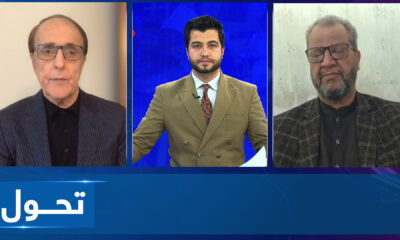Latest News
IEA calls on Doha meeting delegates to help resolve Afghanistan’s challenges
Mujahid told delegates that the IEA is endeavoring to achieve economic independence by laying the foundations of a self-sustaining and secure national economy.
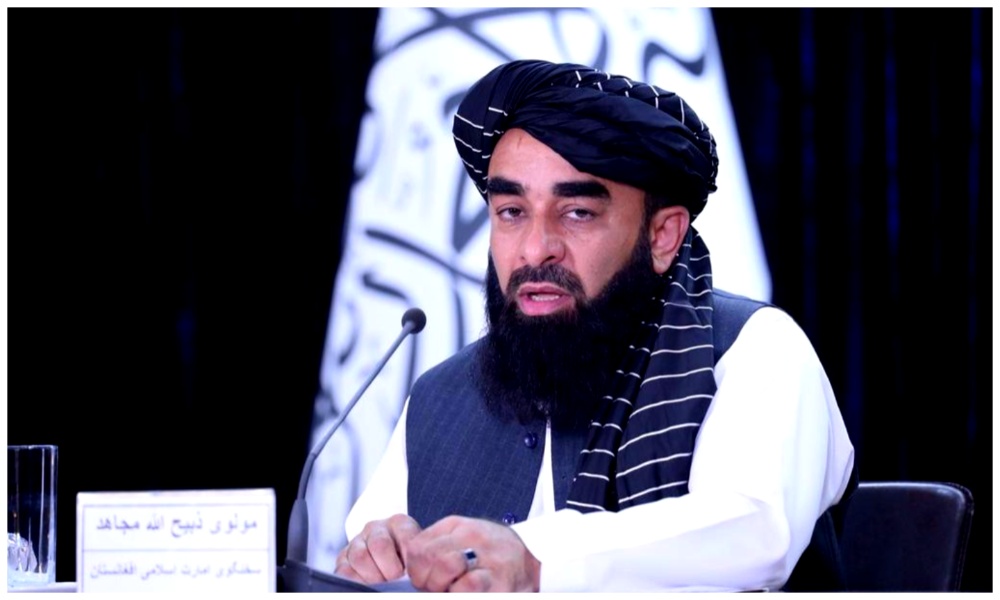
Heading Afghanistan’s delegation to Doha, Zabihullah Mujahid on Sunday called for working groups to be established to resolve three critical issues – the removal of all restrictions and sanctions; the unfreezing of all Afghanistan’s foreign reserves; and finding alternative livelihoods for former poppy farmers.
In his speech to delegates attending the UN-led Doha meeting on Afghanistan, Mujahid said: “We perceive the current Doha meeting as a crucial opportunity to engage in constructive dialogue regarding the unilateral and multilateral sanctions imposed on some officials and our financial and banking sectors, as well as the broader challenges confronting our national economy.”
He said the Doha forum represents a positive step towards addressing Afghanistan’s key challenges but noted that questions were being asked at home as to why no easing of sanctions had been made on the financial and trade sectors.
Mujahid stated that Afghans, who have suffered through almost 50 years of conflict, foreign invasions and interference by other countries had now gained independence, ended the war and built a system aimed at “fostering positive engagement with the world, however, in return they faced sanctions and restrictions?
“Is it fair and appropriate?” Mujahid asked.
He said he knows some countries disagree with the Islamic Emirate’s policies but that it was the duty of experienced diplomats to find ways to interact and understand each other.
“The policy differences should not escalate to the extent that powerful countries use their leverage to impose security, political, and economic pressures on our people, affecting the lives of our nation in a significant way,” he said.
He raised the issue of poppy cultivation and said despite sanctions and outside pressure, the IEA had banned the cultivation, processing and smuggling of poppy.
“Poppy cultivation, which remained as a significant challenge in Afghanistan, we reduced it to almost zero; however, in contrast, instead of recognizing and commending these initiatives, lifting banking restrictions to stimulate the country’s economy and unfreezing national reserves, some countries have continued with their policy of non-cooperation,” he said.
Mujahid told delegates that the IEA is endeavoring to achieve economic independence by laying the foundations of a self-sustaining and secure national economy.
“We are committed to advancing real economic development in Afghanistan, taking initial steps towards creating jobs, establishing factories, lifting people out of poverty, and creating business opportunities for women,” he said.
Acknowledging the countries that provide humanitarian aid, Mujahid implied this was not a solution but that in order to end the humanitarian crisis, the international community needed to remove sanctions, provide development aid and allow the government and people of Afghanistan to utilize their capacities without restrictions for the revival of the national economy.
He spoke on the progress the IEA has made with its neighboring countries in terms of connectivity and mentioned the railway project linking Uzbekistan to Afghanistan and Pakistan. He also touched on the Turkmenistan-Afghanistan-Pakistan-India (TAPI) gas pipeline project.
“In collaboration with Turkmenistan, we have made significant progress regarding the implementation of the ambitious gas pipeline project (TAPI) over the past two years. This milestone ensures positive participation in energy exchange and connectivity between Central and South Asia through Afghanistan,” he said.
He pointed out that a secure Afghanistan benefits the entire region and that ties already forged with regional countries demonstrates the IEA’s commitment to establishing and maintaining good relations.
In light of this, other nations, especially Western countries, can remove obstacles hindering the development of relations with the IEA, he said, emphasizing that differences of opinion “are natural”.
“Like the regional countries, they can take genuine and practical steps toward positive engagement,” Mujahid said.
“The Islamic Emirate of Afghanistan is keen on engaging constructively with Western nations as well. Like any sovereign state, we uphold certain religious and cultural values and public aspirations that must be acknowledged to facilitate progressive bilateral relations rather than encountering disputes and stagnation.
“Our aspiration is for the national sovereignty, independence, values, and preferences of the Islamic Emirate of Afghanistan to be duly respected, as affirmed by the United Nations Charter,” Mujahid said.
He also outlined progress made on a diplomatic note and said: “Just as the regional countries have positively interacted with the current government of Afghanistan as a responsible system, we hope that Western countries will also prioritize mutual bilateral interests in a similar manner.”
Mujahid however slammed “countries and organizations that profess to uphold human rights”. This was in relation to the “ongoing genocide in Gaza, Palestine.”
Without naming countries or organizations, he said: “It is important to note that certain entities directly involved in this humanitarian atrocity lack the moral standing to lecture us on human rights.
In conclusion, he reiterated that in order to ensure the Doha meeting is productive and meaningful, two areas need to be focused on. First was the removal of all restrictions and sanctions and second was the unfreezing of all Afghanistan’s foreign reserves.
“The continued freezing of these reserves has severely impaired the ability of commercial banks to meet the currency needs of their clients, both domestically and internationally,” he said adding that it was also crucial that interactions between
Afghanistan banks and foreign banks resume.
Mujahid’s third point was that alternative livelihoods were needed for Afghan farmers who previously cultivated poppies.
“This is a shared responsibility that must be addressed collectively, and Afghanistan should not be left to manage this challenge alone.
“I propose the formation of working groups to address these issues and look forward to having effective and productive discussions with respected representatives on these matters.”
The UN is hosting its 3rd meeting on Afghanistan. The meeting got underway on Sunday, June 30 and will wrap up on Monday, July 1 in Doha, Qatar.
Representatives from more than 25 countries and international organizations are taking part in the meeting.
RELATED STORIES
Third Doha meeting on Afghanistan gets underway in Qatar
Back from UAE, IEA officials say numerous countries keen to expand ties
Latest News
Afghanistan-Iran-Europe railway corridor activated

The Iranian Embassy in Kabul announced on Thursday that the Afghanistan-Iran-Europe railway corridor has become operational.
In a statement, the embassy said the first export shipment from Afghanistan has started its journey through the Afghanistan-Iran railway corridor to Turkey and Europe.
The corridor was activated with the presence of the Iranian Consul General in Herat and the governor of the province, the statement read.
The statement added that the activation of this corridor, with Iran’s cooperation, will contribute to the improvement of Afghanistan’s economy.
Latest News
Amnesty international urges Pakistan to halt Afghan deportations
Amnesty International said that all Afghan nationals are required to leave the cities of Islamabad and Rawalpindi by 31 March
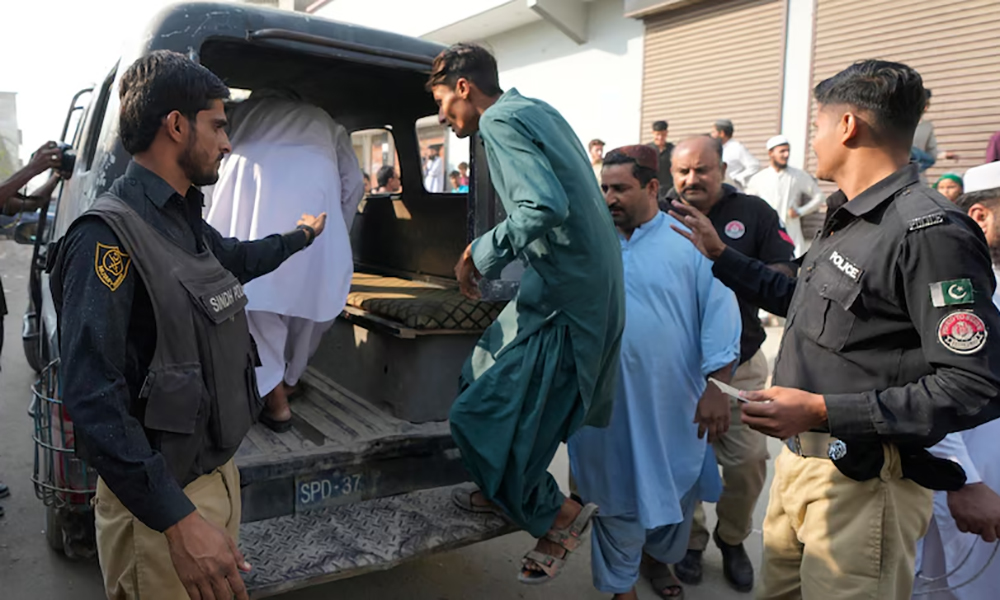
Amnesty International on Wednesday called on Pakistan to immediately withdraw its “Illegal Foreigners Repatriation Plan”, which primarily targets Afghan refugees, ahead of the authorities’ 31 March deadline.
Pakistani government has asked all “illegal foreigners” and Afghan Citizen Card holders to leave the country before March 31, warning they would otherwise be deported from April 1.
Amnesty International said that all Afghan nationals are required to leave the cities of Islamabad and Rawalpindi by 31 March
It said that “arbitrarily and forcibly expelling Afghan nationals, including refugees and asylum seekers, will only add to their plight”.
“The Pakistani government’s unyielding and cruel deadline, which is less than a week away, to remove Afghan refugees and asylum seekers from two major cities, resulting in the deportation of many at risk, shows little respect for international human rights law, particularly the principle of non-refoulement,” said Isabelle Lassée, deputy regional director for South Asia at Amnesty International.
The exact details of the Pakistan government’s ‘Illegal Foreigners Repatriation Plan’ used for deportations has never been made public, but it comes amid a campaign to wrongfully demonize Afghan nationals as so-called criminals and terrorists, Amnesty said.
Isabelle Lassée said that the Pakistani government is only making “a scapegoat of a community that has long been disenfranchised and fleeing persecution.”
Human rights lawyer Moniza Kakar pointed out that forcing Afghan refugees to relocate even within Pakistan is devastating for families. “Many PoR card holders are people who’ve been here for decades, asking them to relocate means you’re asking them to leave homes, businesses, communities and lives they’ve built for years,” she said.
Lawyer Umer Gillani, who has challenged the deportation orders in Pakistan’s Supreme Court and Islamabad High Court, argued that the March 31 deadline was not legally enforceable. “The official notification has not been issued under any particular law; it is just an executive instruction,” he stated.
Meanwhile, the International Organization for Migration (IOM) reported a sharp decline in Afghan returns and deportations during the first half of March. Between March 1 and 15, returns dropped by 67 per cent, while deportations fell by 50 per cent compared to the previous reporting period (February 16-28).
Latest News
IEA leader congratulates Afghans on Eid ul-Fitr
The IEA leader also strongly condemned the Israeli military strikes against the “oppressed and defenseless” Palestinians as a “great injustice and barbarity.”
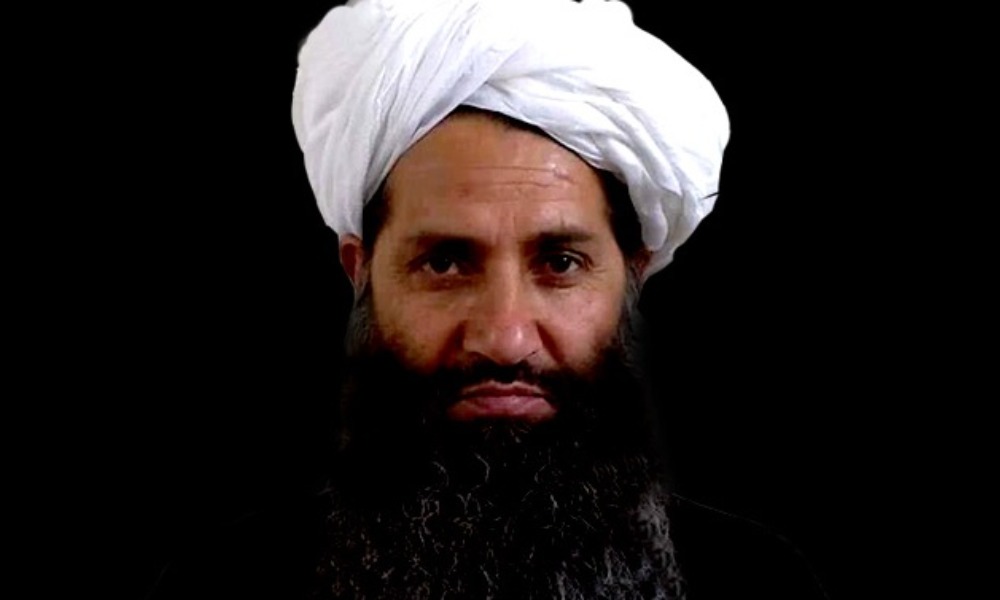
Supreme leader of the Islamic Emirate of Afghanistan (IEA), Mawlawi Hibatullah Akhundzada, congratulated the Afghan people on the occasion of Eid ul-Fitr, calling on them to be strong in their beliefs and not to follow the path of Satan.
In his Eid message, released on Thursday, Mawlawi Hibatullah stated, “Dear Muslim brothers! let us renew our commitment to Allah, the Almighty, and strengthen our resolve to avoid His disobedience and not follow the path of Satan.”
He asked Afghans to thankful to Almighty Allah for security across the country.
“There was a time when on this very day, the funerals of our Afghan brothers were carried out, bombs fell upon us, our homes were searched, and we were dragged into prisons. But now, thanks to Allah, this day has transformed into one of peace and security,” he said.
IEA’s supreme leader reiterated the Islamic Emirate’s resolve to implement Shariah law, instructing courts to ensure judicial rulings adhere strictly to Islamic laws. The message again reiterated that implementing Shariah was a fundamental objective of the Islamic Emirate’s jihad and sacrifices.
On education, Mawlawi Hibatullah said that the educational institutions are tasked with giving serious attention to the correction of beliefs and actions across all educational sectors, aligning their curricula with Sharia, and providing proper training and education to the youth.
Additionally, he cautioned against “harmful propaganda spread by hostile intelligence agencies, who seek to sow despair or create unnecessary concerns about poverty and economic challenges.”
“The Islamic Emirate, with the help of Allah Almighty, is doing all it can to improve your lives.”
Condemnation of Israeli Attacks on Palestine
The IEA leader also strongly condemned the Israeli military strikes against the “oppressed and defenseless” Palestinians as a “great injustice and barbarity.”
“We support the legitimate demands of the Palestinian people and urge the rest of the Islamic world to, as much as possible, support the Palestinians, so they can regain their usurped rights, be freed from the oppression and aggression of the Zionist regime, and put an end to the ongoing atrocities and injustice there,” he said.
-

 International Sports4 days ago
International Sports4 days agoRCB bring fireworks to opening night of IPL 2025
-
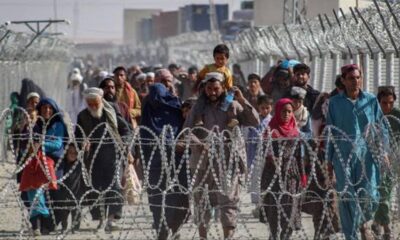
 Latest News4 days ago
Latest News4 days agoTorkham border reopens for pedestrians
-
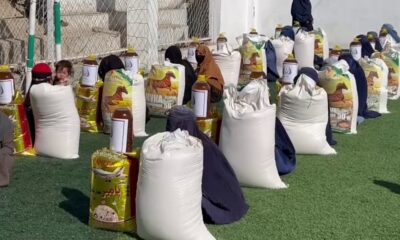
 Latest News4 days ago
Latest News4 days agoBayat Foundation distributes food aid to dozens of needy families in Balkh
-

 International Sports3 days ago
International Sports3 days agoIPL 2025: Sunrisers on a batting rampage; triumph over Rajasthan Royals
-

 Latest News3 days ago
Latest News3 days agoEU says girls’ education crucial for Afghanistan’s long-term prosperity
-
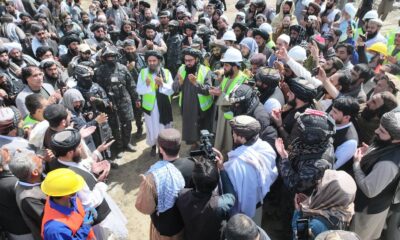
 Business4 days ago
Business4 days agoDeputy PM inaugurates launch of Arghandi Transport Terminal Project in Kabul Province
-

 Sport3 days ago
Sport3 days agoACB names Afghanistan A squad for tri-nation series
-
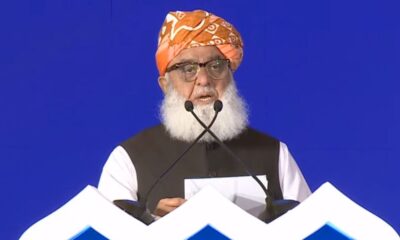
 Latest News4 days ago
Latest News4 days agoPakistan’s mistakes played significant role in rise of terrorism: Maulana Fazl-ur-Rehman

